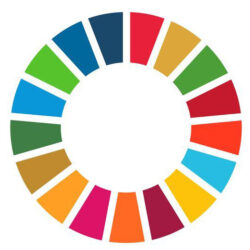
How We Can Unlearn Prejudice

You fear what you don’t know and you don’t understand what you don‘t know. This is a base truth and is the framework for so much of our prejudice.
The problem, of course, becomes our exposure to other worlds. By nature we tend to stick to the familiar and this means we have very little chance to change our perception or preconceived notions.
If we are aiming to make a better world by 2030 I think we really need to take a good look at the inherent biases built into our systems and what we can do to unlearn them.
Let’s look at 3 ways we can change the system to reduce prejudice and finally achieve equity.
Education
We’ve been studying in formal settings for thousands of years. We use the system to teach others information and the tricks needed to interpret that information. Math, spelling, history, a large percentage of our knowledge comes from what we’re taught in the education system.
At points we have also used the school concept to teach other things like poise and etiquette.
Surely we can teach equity in our schools.
This is something we need to start right at the beginning. Exposure to difference—be it race, gender, class, ability, etc.—and qualifying this as not a negative thing is imperative for a kinder and more equal society.
The market is rife with products to help teach this concept, making it easier for the education system to embrace the notion and teach it from early to later years.
If diversity becomes second nature to the next generation all the –isms will have less power and presence. This is the future we need.
Representation
There is a real strength in having diverse voices in any situation as this allows you to see more angles and uncover better solutions. This is why our work world needs to show more variety and explore greater representation.
Proper steps need to be put in place to ensure we all have equal opportunity in employment. Today and tomorrow’s workforce should represent the diversity of humankind. Regardless of how we go about it—diversity policies, active recruitment, affirmative action, etc.—we can create workforces that include everyone. This will do great things for businesses and society as a whole.
Intervention
Think you’re too old to learn a new way to think? No one is a lost cause and it is possible to remove the implicit bias you may be carrying.
This is the quest of the Prejudice and Intergroup Relations Lab. Started by Patricia Devine and operating out of the University of Wisconsin this initiative looks at the potential in unconscious bias training.
The importance of this research is huge. Prejudice and bias hold us back from creating a truly equal society.
I look forward to the day when unconscious bias training is part of our routine.
Humans have the potential for good. I believe this and I think most people do too. At the same time, we can find ourselves developing beliefs that create inequality in society and this is not good.
We can do better. Let’s put the steps in to ensure we never learn to judge.

